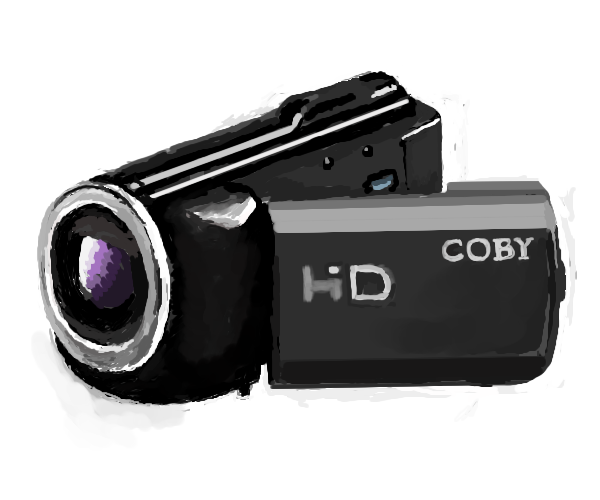
Done with Chibi Paint; cross-posted to Computers Club Drawing Society
Was complaining about the web-as-cesspool and comment-spamming a few posts back and should add that Google has much blame in this. The company that helped put obscure bloggers on the map in the early '00s then turned those highly-trafficked blogs into link farms later in the decade, not so much by design as through lack of ethics. In 2007, Anil Dash described how this happened:
Connecting PageRank to economic systems such as AdWords and AdSense corrupted the meaning and value of links by turning them into an economic exchange. Through the turn of the millennium, hyperlinking on the web was a social, aesthetic, and expressive editorial action. When Google introduced its advertising systems at the same time as it began to dominate the economy around search on the web, it transformed a basic form of online communication, without the permission of the web's users, and without explaining that choice or offering an option to those users.
Worse, the transformation was retroactive and the eventual mechanisms for opting out were incomplete in that the economic value could not be decoupled from the informational value. Inevitably, spammers arose to take advantage of the ability to create high-economic-value links at very low cost, causing vast damage to the ability to use links as a purely informational exchange. In addition, this forced Google to become more and more opaque about the refinements and adjustments it makes to its indexing algorithms, making a key part of their business less and less transparent over time. The eventual result has been the virtual decimation of communications systems like TrackBack, and absurdities like blogs linking to their own tag search results for key words in lieu of useful links, in an attempt to appease a search algorithm that they will never be allowed to fully understand.
An awareness of how a transformation in the fundamental value of links from informational to economic could have led Google to develop a system that separated editorial and aesthetic choices from economic ones, preventing the eventual link-spam arms race.
Good discussion at adactio about RSS and its enemies (hat tip naked capitalism).
It’s not like RSS is a great format—it isn’t. But it’s just good enough and just versatile enough to enable non-programmers to make something cool. In that respect, it’s kind of like HTML.
The official line from Twitter is that RSS is “infrequently used today.” That’s the same justification that Google has given for shutting down Google Reader. It reminds of the joke about the shopkeeper responding to a request for something with “Oh, we don’t stock that—there’s no call for it. It’s funny though, you’re the fifth person to ask today.”
And:
In a post called The True Web, Robin Sloan reiterates the strength of RSS: "It will dip and diminish, but will RSS ever go away? Nah. One of RSS’s weaknesses in its early days—its chaotic decentralized weirdness—has become, in its dotage, a surprising strength. RSS doesn’t route through a single leviathan’s servers. It lacks a kill switch." I can understand why that power could be seen as a threat if what you are trying to do is force your users to consume their own data only the way that you see fit (and all in the name of “user experience”, I’m sure).
A feed reader is still a good way to follow non-social-media sites that post infrequently (so you don't have to keep checking them); a collection of these "indies" is strong intellectual medicine in a web fast becoming homogenized and company-fied. In the next few days, ahead of the Google Reader shutdown, I'll post a handful of feed-reader alternatives.
Also of interest are Anil Dash's posts on The Web We Lost and rebuilding it.